|
We are pleased to inform you that the international seminar "The smart city project - the building block of digital transformation" that was organized on 28.04.2022 by the Cluster Sofia Knowledge City and University of Library Science and IT has finished with success. It was a stage of the ongoing international project №:2020-1-BG01-KA202-079071 "Smart skills for smarter cities", funded by the Erasmus+ Programme and supported by members of the cluster and the Digitalization, Innovation and Economic Development Department at the Sofia Municipality. Over 50 participants had the opportunity to be in Launchee Center in Sofia to meet the panelists from Innovative Sofia, GATE Institute, ARIES Transilvania, RISK Electronics, ECQA, Austria, and IDEC, Greece and to listen to their discussions. Most of the participants in the event were representatives of smart city stakeholders, students and those who are interested in smart city technologies, challenges and good practices. The participants' attention was drawn on the needs of professional knowledge and skills to improve the efficiency of digital transformation of cities and on the role of three new professions directly concerned with the developing, managing and implementing smart city projects. For those who are interested to view the presentations of our panelists, click on the links below:
We also thank to our moderators Milena Koleva and Christian Filipov from CSKC. More about the project and the planned outputs and deliverables everyone can find on the project website here. As it was pointed out in the previous articles thanks to the project Skills4Cities we came to the conclusion that three professions are among the most relevant for facing the challenges of the smart city projects implementation and they are.
Role DescriptionSmart City Project Management Consultant or adviser can be an external professional management consultant, hired, based on a time contract or on a project basis. In very rare cases he/she can be also an internal consultant in a job position as an expert in the city administration. Unlike a Smart City Project Managers' direct involvement in the Smart City project lifecycle, professionals who offer such project consultancy devote their time to advising the municipalities on smart city projects or directly the Smart City Project Managers, who are already engaged by the city government or other city's stakeholders for managing a particular project. The city administrations or all city stakeholders pay for project management consultancy services if they lack project management expertise in this specific area or need an impartial party to evaluate the work of Smart City Project Developers or Smart City Project Managers. This approach seems to be growing, as more cities over the world report using outsourcing or contract project management services, according to some surveys. The SC-Project Advisors bring specialized skills and knowledge to assist the implementation of such projects in the cities as well as in making the best possible decisions in resolving concrete challenges that Project managers meet during the life cycle of the project. They typically provide advice as consultants and sometimes as mentors to SC project managers or in some cases, depending on their contracts they are involved in the oversight and leadership in executing projects from planning to completion. Daily tasks can include managing budgets, resources, and relationships to achieve organizational objectives, as well as planning, developing, and executing schedules to ensure the timely completion of projects. These professionals often define and monitor each project team member’s role and function and coordinate all team activities throughout the lifecycle of a project. Identifying and managing project risks and developing solutions are additional duties. IMPORTANT: What’s the difference between a Smart City Project Manager and a Smart City Project Management Consultant? While both professionals need each other’s help throughout the phases of a project, project managers tend to oversee every aspect that goes into the execution of a project, including resources, people, time, materials, and money. They balance these elements to achieve the objective, no matter what gets in the way. But, when smart city project managers need to understand the specific limitations of each factor, they can count on a smart city project consultant. These professionals help managers of smart cities make sure that proper strategies are being adopted in a project from beginning to end. Responsibilities & DutiesDuring the execution of any project, the SC-project advisor analyses data identifies trends and inefficiencies to prevent problems from arising during the project management. Providing roadmaps and periodic recommendations to the city manager or directly to the project manager are common functions of the role, as is the creation and implementation of mitigation and contingency plans. Other tasks required of an advisor can include:
What is the relation and similarity of this job role to other job roles?To our understanding, this job role (profession) is quite similar and close to other commonly accepted and used in the professional world professions like Certified Management Consultant (CMC), Project Management Consultant, Project Management Service Provider. etc.
As it was pointed out in the previous article thanks to the project Skills4Cities we came to the conclusion that three professions are among the most relevant for facing the challenges of the smart city projects implementation and they are:
This, third consecutive article is about the job role of the Smart City Project Manager (SCPM). Role DescriptionThe role of the Smart City Project Manager (SCPM) can be played by an external professional, hired based on a time contract or on a project basis as well as an internal person that occupies a position in the city administration (in rarer cases). She or he could be a practitioner preferably with at least a bachelor’s degree in ICT/ Electronics/ Computer Engineering, many years of technical expertise, and project management certification, recognized by international project management certification bodies. The Smart City PM could be engaged by the city’s governments or other city’s stakeholders to manage and implement various smart cities projects based on the previously developed terms of reference. She or he may participate also from the beginning of smart city project development, being included fully or partially in participatory work with the Smart City Project Developer, a job role that we have already described in the previous article. Apart from the experience, knowledge, and skills in project management and coordination in general the Smart City PM must be able to demonstrate many other abilities including knowing and effectively explaining the city digital transformation strategy and the specific project approach to external partners audiences, or other stakeholders and the role of the project he/she runs within the context of the strategy documents of the city. The Smart City PM must have strong management skills including strong leadership and team working, the ability to provide strategic guidance, technical oversight, build strong teams, mentor staff, develop work plans, and manage budgets and project expenditures. One of the most important roles of the PM is to effectively manage the network with partners at all levels (local government, development partners, private sector, NGOs, and Academia). More than other project managers the Smart City PM must demonstrate written, analytical, presentation, reporting, and computing skills and familiarity with modern communication systems (internet, world wide web, email, etc), as well as very good knowledge of matters related to the digitalization, ICT policy and regulations in these areas. And because of the nature of the smart city projects, this PM must be particularly well skilled in conflict and change management. As well as Smart City Project Developer she or he must know very well the critical success factors and the usual mistakes one city makes when implementing smart city projects and know good practices as well as have experience with other smart city projects. The Smart City PM monitors and supervises the work of Smart City Consultants (advisers), institutions, government staff, and other partners, facilitate meetings, and, as far as possible, ensures the timely and responsive delivery of outputs and reports. Provides to institutions/consultants visiting or engaged in assignments, including preparing itineraries, appointments and assisting with travel and other logistical arrangements. Responsibilities & DutiesThe Smart City PM provides required technical leadership and administrative support to coordinate and implement project activities across a city while ensuring effective linkages to the core strategy and objectives of the transformation process of the city into a smart city. Prepares and coordinates an annual work plan for submission to the head of digital transformation services. She or he reviews and prepares analysis and research on the sector, using regional and global resources including academia and industry. The PM helps the departments of the municipality in bringing new allies and strengthening the commitment of existing partners. Establishes close collaboration and working arrangements with a interdisciplinary team composed of experts from local government, private sector, NGOs, and other professional associations, to ensure good coordination, collaboration, and timely conduct of Smart City activities. The PM follows through the mobilization of funds/resources from other development partners and institutions to complete the financing of the Smart City projects. Provides periodical reports on the progress of project activities and issues arising. Participates in project meetings and workshops and other activities as required. Prepares the terms of reference and identifies consultants/institutions to undertake assignments in accordance with the approved work plan. What is the relation and similarity of this job role to other job roles?To my understanding this job role (profession) is quite similar and close to other commonly accepted and used in the professional world professions such as Certified Project Manager, Project Management Professional, EU Project Manager.
To be continued... The next article will be dedicated to the description of the second identified job role (profession) namely the Smart City Project Advisor. READ PART 2 OF THIS ARTICLE HERE -------------------------------------------------------------- Cluster Sofia Knowledge City (CSKC) is an association of enterprises from knowledge-intensive industries, universities, R&D organizations related to the chain of production and supply of technologies, products, and services. It is a tool for joint actions of the business, education, and science with urban and public institutions to generate and effectively use knowledge, know-how, and scientific infrastructure for the benefit of the city. The main goal and policy of the cluster are to stimulate the development of the market for intelligent and breakthrough technologies and to attract talents necessary for the digital transformation of businesses and cities. This is the second article from the total of four consecutive articles I started at the beginning of November on the topic of job roles (professions) smart cities need. In the project Skills4Cities we have identified the following three key professions as most important for transforming cities into smart cities:
We have identified these three professional roles as a result of the conducted fast-track desk study - the mapping of the smart city projects within its main domains and also, on the identified challenges that smart city projects face derived from its complex and multidisciplinary field. This article is an attempt to describe the main characteristics of the Smart City Project Developer (SCPD). Role DescriptionSmart City Project Developer (SCPD) can be an external professional, hired based on a time contract or on a project basis as well as an internal person in the job position in the city administration (in rarer cases). She or he is a highly skilled and knowledgeable practitioner who could be engaged by cities or other city’s stakeholders to initialize, demonstrate, lobby, plan, communicate with all of them, and pitch on the city level various smart city projects and know-how to run and facilitate a smoother project acceptance and development in relation with the city's needs, strategies, and tasks. Such a person is considered to have a qualification and experience that enables her/him to easily implement skills and knowledge for general and innovation management as well as project management and managing change in diverse, sophisticated, and conflict areas. Such professionals must know how to study and prioritize the needs of one city, how to engage stakeholders, and how to use good practices of successful smart city projects. He/she is to be a high-level design thinker and conceptualist who can ideate, generate, and defend a feasible initiative that can be turned into a smart city project. He/she knows very well the critical success factors and the usual mistakes one city makes when generating and implementing smart city projects. One of the most important competences for playing such a role is the good awareness and a high level of knowledge of disruptive digital technologies and their areas of application for the needs of the smart cities. Certainly, good knowledge of similar cases over the world and even experience in the implementation of smart city projects will be advantages for being an excellent SCPD. Smart city developers usually prepare smart city project concept notes to use for the next activities they are engaged in. After a concept note for a future smart city project is approved and coordinated throughout the stakeholders, the SCPD should elaborate a Term of reference for the detailed development of the project and together with the Smart City Project Manager, she/he will be engaged to prepare the full-frame and content of the project depending on whether the project will serve for finding grants, raising funds from private investors, or apply for a hybrid investment vehicle. Such a role also requires a set of financial competences such as skills and knowledge for making feasibility analyses, cost-benefit analyses, business, and financial planning, etc. Responsibilities & DutiesIf SCPD is in the job position in the city administration he/she will be responsible for ideating, conceptualizing, and overseeing the results and impact evaluation of various projects for smart cities. If SCPD is not in such a position, then he/she does this work on a contractual basis as an external expert. What does she/he used to preform?
What is the relation and similarity of this job role to other job roles?To my understanding this job role (profession) is quite similar and close to other commonly accepted and used in the professional world professions such as Business Developer and Corporate Projects Developer.
To be continued... The next article will be dedicated to the description of the second identified job role (profession) namely the Smart City Project Manager. READ PART 1 OF THIS ARTICLE HERE -------------------------------------------------------------- Cluster Sofia Knowledge City (CSKC) is an association of enterprises from knowledge-intensive industries, universities, R&D organizations related to the chain of production and supply of technologies, products, and services. It is a tool for joint actions of the business, education, and science with urban and public institutions to generate and effectively use knowledge, know-how, and scientific infrastructure for the benefit of the city. The main goal and policy of the cluster are to stimulate the development of the market for intelligent and breakthrough technologies and to attract talents necessary for the digital transformation of businesses and cities. I think that attracting talent will be one of the most important success factors for cities' management. I do expect to begin a "war" in the frontline of HR (or it has already started) next decade between cities at the global as well as at a regional level. In this war, the role of project managers, advisers, and business developers specialized in the smart city context will become a powerful and long-range gun. This was the reason to run the project Skills4Cities, which already passed halfway through its implementation. This short article will be the first one of in total four consecutive articles I will be publishing on the website of the project and the cluster. All of them will be about the roles and expectations we have in relation to the three professions we identified in the project as most important for transforming the cities into smart cities or in what we usually call "future cities". Creating a smarter urban environment is a multi-sectoral, inter-organizational and intergovernmental task. In order to develop an effective Smart City plan and/or implement a smart city project, it is necessary to bring together people from different backgrounds and with different skills and competencies. These should be usually cross-functional teams composed of individuals from different departments and spheres of expertise brought together to complete Smart City initiatives. Cross-organizational and interdisciplinary teams are the solution in case of integrated plans oriented to a variety of social groups, affected by the problems of shared resources, decreasing budgets, and scarce profit prospects, as in the case of smart city projects (Piercy et al., 2013; Nam and Padro, 2011). Thus, some European cities have started creating dedicated Smart City Departments. Undoubtedly, the administration and other professionals that work for smart cities require new competencies that currently the education systems provide are quite fragmented. Few universities provide a well-balanced curriculum for smart city governance to the learners. The new types of jobs require the experts to be well trained to meet the needs of smart cities. Such learners, being the future drivers of these industries and smart city agents, are the main human resource to fulfil the vacancies of these workforces. Constant improvements in and re-evaluation of the curriculum taught to the learners have to be done regularly to keep the learners up to date in fulfilling the requirements of the industries and corporations. Thus, our understanding is that the new era cities need well addressed vocational training of experts who should upgrade their competencies and skills after their classic (normal & formal) education. Considering the smart city competencies’ needs, we can divide the professionals who are most involved in the process of transforming the cities into smart and implementing smart city plans and activities into three main groups: 1) Internal staff (employees of the cities) of the urban and regional administrations, that are directly committed to the realization of the local government policies, strategies, and plans. From one side these are city officers who are members of the specialized administrations and departments engaged with the smart city matters and from another side, in case of lack of specialized departments, these are regular city officers who could be engaged with the realization of such activities on a project basis. 2) A large group of hired external representatives of the urban economic environment, architects, engineers, as well as technicians who work in the field of technical solutions for smart cities, economists, geologists, cartographers, lawyers, among others, all working as service and equipment suppliers (individuals or companies). 3) Freelance professionals, hired on a project base, who have the competencies to develop, manage and implement smart city projects - milestones of the cities' transformation process. Skills4Cities project defines these professionals as smart city project developers, managers, and consultants. To our understanding, these professionals are the most important agents of change that can motorize the process of transformation. They are design thinkers and very often leaders of the realization of smart city projects. To be continued...
The next article will be dedicated to the third group of professionals the smart cities will be looking for and to the needs for competencies and the roles they can play for the cities. -------------------------------------------------------------- Cluster Sofia Knowledge City (CSKC) is an association of enterprises from knowledge-intensive industries, universities, R&D organizations related to the chain of production and supply of technologies, products, and services. It is a tool for joint actions of the business, education, and science with urban and public institutions to generate and effectively use knowledge, know-how, and scientific infrastructure for the benefit of the city. The main goal and policy of the cluster are to stimulate the development of the market for intelligent and breakthrough technologies and to attract talents necessary for the digital transformation of businesses and cities. Author Dimitar Hristov @Cluster Sofia Knowledge City This short article is based on the results of the project Skills4Cities, an Erasmus+ project and in particular on the “Toolkit for smart city competencies framework”. The Smart City concept continues to be a subject to debate, and definitions of smart cities vary. However, in most cases, smart cities are connected to initiatives that use digital innovation to make urban service delivery more efficient and thereby increase the overall competitiveness of a community. With the development of new technological innovations, the concept of the Smart City is mostly being engaged with the understanding to achieve more efficient and sustainable cities. Cities are becoming smart not only in terms of the stage of their technological development, but also in ways that enable us to monitor, understand, analyse, and plan the city in order to improve the urban performance. While digital innovation remains central to the smart city concept, a key question is whether an investment in smart technologies and digital innovations ultimately contribute to improving the well-being of citizens. The human-centric approach is also considered key to making a city smarter. That is why in a recent OECD publication (Smart Cities and Inclusive Growth, 2020) smart cities initiatives are defined as “initiatives or approaches that effectively leverage digitalization to boost citizen well-being and deliver more efficient, sustainable and inclusive urban services and environments as part of a collaborative, multi-stakeholder process”. After an in-depth study under the Skills4Cities project, of recent reports on the problems, constraints, and challenges which the smart city projects face the project team identified the main challenges related to the development, management, and implementation of Smart City projects. The urban organism is a complex system, involving many different domains, infrastructures, organizations, and activities. All these systems need to integrate and work together effectively for that city to become smart. This integration needs to take place at many levels, technical, but also about the integration of business processes and management, integrated strategies, and regulations. It is clearly impossible to develop a single model of a smart city that will be simple enough and at the same time enough comprehensive to cover all the key aspects. While urban infrastructure may provide facilities to the citizens, it can only be converted into smart solutions and services through the use of digital technology. Digital technology has the main role in the implementation of Smart City solutions in the city. While implementation of the Digital technology solution shall immensely enhance the effectiveness of the urban infrastructure, there is very little capacity amongst the city administrators to understand and implement such technology solutions effectively. Thus, the cities and the professionals working in this field face innumerable challenges in implementing Smart City projects. Of course, this list below is not entirely exhaustive and probably there are many other challenges that arise due to the complexity of those projects. However, the Skills4Cities partners agreed they are most common and relevant in relation to the skill gaps of the experts who are involved in such projects:
Considering the above-mentioned findings could be concluded that the biggest issues when implementing Smart City projects are not about the technology itself but rather the problems that arise when the ideas have to be put into action and related to these professionals with relevant expertise and specific competencies that are able to either develop or manage or implement such complex and multidisciplinary projects as the Smart City ones. Therefore, all of the above-mentioned challenges require a specific set of skills and knowledge to be a smart city professional/practitioner. Such professionals who have a good understating of the underlying information and communication technology, effective management of such technology-intensive projects, good procurement and financial acumen, and great communication skills, will alone be successful in implementing such projects. Author Dimitar Hristov @Cluster Sofia Knowledge City . Digitalization and automation mean progress, and new technologies can improve the quality of life in big cities. When we think of smart city solutions, a few keywords come to our minds such as smart mobility, smart grids or waste reduction, but it is important to also look at Smart Living solutions. There is a wide spectrum of smart city applications, ranging from air quality monitoring, parking, street lighting controlling and many others. Applications are indispensable tools in big cities, whether they are made available to citizens by public administrations or they are made available by IT companies. App Dedicated to Social Distancing in RestaurantsFor example, an application which allows customers to order from the phone, before arriving at the restaurant, is developed by the IT company FlamingoApp from Cluj-Napoca, member of Transilvania IT Cluster. Basically, the application helps customers have the food ready by the time they reach the restaurant. This application became very popular in the pandemic context. Ana Neamțu, founder of the IT company, said that employees are now working to add restaurants to the application, to be adapted to the new requirements, related to the menu that will be only in a digital format and compliance GDPR on the register of customers. "We are working on developing the Flamingo App for pre-orders in the restaurant to ensure social distancing, putting customer safety first. Through the application on the mobile phone, restaurant customers order the menu before arriving at the place, so that when they arrive, the food is ready to serve. Interactions with waiters will be reduced from a minimum of seven to one, only when the order is placed. Each customer will set the time of booking so that the restaurant has time to prepare and the number of people who will be at the table", said Ana Neamțu. The payment of the food order is made exclusively with a card in the application, in order to avoid contact with the money that may carry the virus. The application is useful for the HORECA industry, in this period when social distancing is recommended, just as physical contacts should be as few as possible. (photo -1 flamingo app - source: cluj.info) Parking AppsAnother application developed by a company from Cluj-Napoca is dedicated to parking spaces. In all big cities it is almost impossible to find vacancies and you often waste a lot of time finding a vacancy. YeParking is a free parksharing application, developed in Cluj, which brings together a community of thousands of drivers, willing to share their parking spaces. In turn, they can park for free on the places available in the application. Drivers, who help the community by providing a parking space, are rewarded with virtual coins (parkCoins), which can benefit from discounts on various products and services of the application developer's partners, as well as discounts on private parking lots that have started to be listed in the community. The first of them is the Cluj-Napoca Airport Parking, according to the application's website. From the same category is the Cluj Parking application - the application of the City Hall for parking spaces in the center of Cluj, developed by the company AROBS from Cluj-Napoca. Through this app, Cluj-Napoca City Hall provides citizens with parking spaces available in the 6 barrier parking lots in the city. Solution for the Public SectorNTT DATA AMLAD is an application of the company NTT DATA ROMANIA and is dedicated to museums, libraries, public archives and companies to store and archive images, videos and audio documents in one place. A city can’t be a smart city without smart living which combines the use of apps, social networks and new social technologies.
Author: Laura Goarnă @ARIES Transilvania Technologies are expected to help citizens make better informed decisions. But, the adoption of new technologies which are connected to the network, always comes with inherent risks. Moreover, with the increasing risk of cybercrime and data theft, smart cities should be prepared to deal with any potential threat. Safety and security are two of the main concerns in any city, and with the incorporation of digital technologies, the concern becomes greater. Therefore the Cybersecurity is a key enabling technology for our cities. Cities need to integrate solutions that provide strong authentication and ID management solutions to ensure a safe and secure urban environment. In fact, the inclusion of smart technologies has the potential to reduce fatalities and improve emergency response times. Smart City VulnerabilitiesBecause a threat could be introduced into a smart city's infrastructure at any compromised location, the risk can escalate rapidly as one system can compromise the next. When a seemingly harmless connected device is hacked and injected with malware, that attack could affect other devices, causing cascading damage throughout the whole infrastructure. For example, a breach of street lighting systems could lead to control of lights, which could lead to servers, which in turn would generate data on individual customer behavior and ultimately end up with access to financial and other personal information about citizens, possibly even their health records. It's not unlike a recent major distributed denial of service (DDOS) attack, in which everyday IoT devices such as baby monitors were hacked and turned into a botnet to take over some of the world's largest websites. Cities could be equally susceptible as they rapidly deploy connected devices in municipal domains. In addition, customer-centric information aimed at citizen convenience may also be quite vulnerable. Unfortunately, the development of cybersecurity credentials, security and prevention systems for smart cities has not kept pace with the growing adoption of digital capabilities. Some European cities, anticipating the potential downside of digital transformation without controls, have already implemented safeguards. With the European Union's General Data Protection Regulation, residents in European cities can opt in rather than having to actively opt in to multiple systems. Meanwhile, many cities have employed certified biometric systems, cryptography and digital privacy policies, establishing a culture of cybersecurity. Recognizing the need to start and then budgeting for cybersecurity as part of an overall smart city initiative can help avoid additional expenses once the system is already in place. As with IoT in consumer products, connected systems throughout the city also need security protocols. There are an unknown number of potential vulnerabilities and methodologies, some of the most common attacks include:
Security MeasuresIn order to avoid these problems and to avoid new vulnerabilities, there are some best practices that should be taken into account until there are some concrete standards and ways of acting are established[1]:
An interconnected smart city sounds great and is a trendy: drivers avoid traffic jams; citizens' needs are predicted in advance by city services; utilities provide real-time information, allowing residents to adjust usage, etc. However, a cyber-secure interconnected utopia includes the right controls with proper implementation to ensure that connected infrastructure is accessible only to the right people at the right time for the right reasons. Author Jon Mitxelena @GAIA Resources: [1] https://ciberseguridad.com/guias/smart-cities/ Smart Cities are known to combine the use of cross-cutting and innovative technologies (ICT but not only) to improve the provision of urban-based services to citizens in a more efficient way if compared to the traditional methods employed so far. In the age of the CoVid-19 pandemic, where distances have represented the first line of defense against the increasing degree of contagion from this virus, smart city project managers have had to face a new conundrum: how can cities continue to function when movements are being limited for health-related reasons? Indeed, different waves of lockdown have affected Europe as a whole, to different extent but with a halt to the freedom of movement as being a common factor to all countries in Europe and beyond. To this end, different cities have started to reimagine their urban environments as micro-clusters that can provide whatever is needed to citizens within the span of a few minutes. Usually, limitations have been imposed on short distances or on the borders of the single municipality: for this reason, the maximum amount of time employed by people, on foot or by bike, can be calculated in just a few minutes – or just one, even. This was the challenge launched by the Swedish national innovation body Vinnova and design think tank ArkDes. The idea is to combine a participatory approach to urban policy planning through the involvement of local citizens and the implementation of innovative solutions, also technology based. It represents a good example of cooperation between the idea of smart city project managers trying to implement on a small scale while taking into consideration during all phases of development both the needs and the ultimate goal of the project – that is, to enable citizens to enjoy all cities’ services within minutes from their residence.[1] This approach to innovation and smartness can be considered to take place at the neighborhood level, and it is fair to define them as smart neighborhood. Furthermore, Sweden is not the only example in this category. To different extent in terms of time employed, but also Barcelona (the “superblock”), Paris (“15-minutes city”[2]) and other cities have been working on this kind of solutions. Then, what exactly are the measures that are being put in place to allow citizens to move less but to actually experience and enjoy more their city at the neighborhood level? A first aspect that felt like needed rethinking was the space used by streets. With the progressive use of nature-based solution, developed according to the needs identified by the local residents, neighborhoods have started designing new structures that can help citizens enjoy more their local areas rather than having to move further away from their home. The same goes for similar green initiatives, like urban gardens – addressing both community-building and food supply issues (as in Los Angeles[3]). Other digital solutions are the widespread of bike sharing technologies, with cities’ sidewalks flooded with such opportunities, or cashless transactions[4]. The goal of this neighborhood-based solutions is to prove that smaller scale solutions for smarter cities are not only possible, but advisable in terms of practical benefits, governance and lower costs. Author Antonio Gennarelli @IDEC RESOURCES [1] ArkDes website. Accessible here: https://arkdes.se/arkdes-play/nu-flyttar-streetmoves-fran-stockholm/. See also: O’ Sullivan, Feargus. Make Way for the “One-Minute City”. Accessible here: https://www.bloomberg.com/news/features/2021-01-05/a-tiny-twist-on-street-design-the-one-minute-city [2] Yeung, Peter. How ’15-minute cities’ will change the way we socialise’. Accessible here: https://www.bbc.com/worklife/article/20201214-how-15-minute-cities-will-change-the-way-we-socialise [3] Berg, Nate. An illegal curbside garden flourishes in L.A. Accessible here: https://www.bloomberg.com/news/articles/2012-04-10/an-illegal-curbside-garden-flourishes-in-l-a [4] Moreno, C. et al. Introducing the “15-Minute City”: Sustainability, Resilience and Place Identity in Future Post-Pandemic Cities. Smart Cities 4 (1), 93-111, 2021. Accessible here: https://www.mdpi.com/2624-6511/4/1/6 This article is based on a study done so far on the Project Smart Skills for Smarter Cities (Skills4Cities), launched by the Cluster Sofia Knowledge City at the end of 2020 with the support of the Programme Erasmus +. It reflects the work of the partnership till now and is a first attempt to draw some important conclusions the partners came to regarding the so-called skills gaps in the field of smart cities projects. Smart City is a term denoting the effective integration of physical, digital, and human systems in the built environment to deliver a sustainable, prosperous, and inclusive future for its citizens. The smartness of a city describes its ability to bring together all its resources, to effectively and seamlessly achieve the goals and fulfill the tasks it has set itself. Undoubtedly, the administration and other professionals that work for smart cities require new competencies that currently the education systems provide quite fragmented. Few universities provide to the learners a well-balanced curriculum for smart city governance. The new types of jobs require the experts to be well trained to meet the needs of smart cities. Such learners, being the future drivers of these industries and smart city agents, are the main human resource to fulfill the vacancies of these workforces. Constant improvements in and re-evaluation of the curriculum taught to the learners have to be done regularly to keep the learners up-to-date in fulfilling the requirements of the industries and corporations. So, our understanding is that the new era cities need well addressed vocational training of experts who should upgrade their competencies and skills after their classic (normal & formal) education. In regards to the smart cities' competencies’ needs, we can divide the professionals, who are most involved in the process of transforming cities into smart and realizing activities to implement smart city plans and activities, into three main groups: 1. Internal staff (employees of the cities) of the urban and regional administrations, that is directly committed to the realization of the local government policies, strategies, and plans. From one side these are city officers who are members of the specialized administrations and departments engaged with the smart city matters and from another side, in case of lack of specialized departments, these are regular city officers who are engaged with the realization of such activities on a project base. 2. A large group of hired external representatives of the urban economic environment, architects, engineers, as well as technicians who work in the field of technical solutions for smart cities, economists, geologists, cartographers, lawyers, among others, all working as service and equipment suppliers (individuals or companies). 3. Free-lance professionals, hired on a project base, that have competencies to develop, manage and implement smart city projects - milestones of the cities' transformation process. Skills4Cities project defines these professionals as smart city project developers, managers, and consultants. To our understanding, these professionals are the most important agents of change that can motorize the process of transformation. They are design thinkers and very often leaders of the realization of smart city projects. Skills4Cities Project FindingsThe following three findings at this stage of the project are important for this article: 1. Among many different drivers for the smart cities’ development, it was found that the “smart city project” is a key instrument for making cities smart. For that reason, the smart city project was put on the stage as the main standpoint for competencies mapping and modeling. 2. The third, from the above-mentioned target groups, i.e., the freelancer professionals like projects developers, managers, and consultants, was crucial for smart city projects' success. That is why the Skills4Cities team focused on upskilling these practitioners with a set of competencies, which can make them real agents of cities' change. 3. It was also found that the set of competencies of the above-mentioned freelancer professionals includes:
Smart City ProjectsOne project is considered a smart city project when it’s associated with a higher number of smart city main dimensions which are economy, people, governance, environment, mobility, and living. Each dimension represents a particular aspect of the city where a smart project aims to achieve smart city goals in efficiency, sustainability, and high quality of life. One of the challenges of smart city projects is their size and scope where two types of projects can be defined. Greenfield projects, which are huge, long-term, usually start from zero, and brownfield projects - smaller sized projects, short-term and fast implemented, which are usually built on existing infrastructure and are preferred by investors for generating fast revenues. Undoubtedly, smart city projects are very complex, multidimensional, multi-stakeholder, citizen-centric, and citizen opinion sensitive, requiring serious leadership, managing change approach, and building on the normal managerial and project management knowledge and skills. Mapping Smart City ProjectsLet's start, in a systematic way, to map the smart city projects, showing where the cities usually invest, domain by domain. As it was already stated, this is based on the study of the results of the mentioned survey. 1. Economy, trade, and industry. This domain includes projects and initiatives for attracting business, generating growth, and industrial development. The most effective projects that one city implements to improve economic, trade, and industry development are these that make it possible to track economic & industrial trends to make decisions; working with business & academic community; aligning higher education with local industry needs; attracting companies through incentives & work with trade groups and attracting/developing talent & skills. 2. Government and education. In this smart city domain, the cities usually look for investors for the following city projects:
3. Living and health. This domain includes projects for ensuring the well-being and equity of citizens. In this smart city domain, the cities usually look for investors for the following city projects:
4. Public safety This domain includes projects for disaster early warning systems, computer-aided dispatch, drones, and in-car and body cameras for police. In this smart city domain, the cities usually look for investors for the following city projects:
5. Mobility and transportation This domain includes projects for partnerships, innovative funding, technology, data, and governance and policy to help people and goods move faster, more safely, and efficiently, and without leaving a carbon footprint. In this smart city domain, the cities usually look for investors for the following city projects:
6. Environment and sustainability This domain includes projects for promoting the circular economy and using gamification to boost recycling, reduce food waste, adopt zero waste programs, and digital track waste disposal. In this smart city domain, the cities usually look for investors for the following city projects:
7. Energy, water, utilities This domain includes projects to enhance services, encouraging the use of renewable energy, and promoting efficient water usage. In this smart city domain, the cities usually look for investors for the following city projects:
8. Digital infrastructure and networks This domain includes projects to become better at using data and analytics to understand where the divide exists, providing free Wi-Fi, working with partners to provide free devices, and leveraging PPPs to foster digital equity, partnerships with telecom providers to provide smart services, to use data analytics to understand the digital divide and to use PPPs. In this smart city domain, the cities usually look for investors for the following city projects:
ConclusionsSmart City project competencies in our understanding apart of transversal skills, knowledge about key technologies and skills for dealing with the challenges, include also knowledge about the areas of application and the way such technologies аре use. Undoubtedly, people working on smart city projects need access to accumulated knowledge and information for good practices of how smart city projects are generated, initiated, developed, and implemented in the listed smart city areas.
The collected above diverse types of investment projects taken from hundreds of cities generated within the eight smart city domains report a very high return on investment of over 90%. Thus, these projects can facilitate the identification of good practices in studying each city and be a basis for measuring and benchmarking results. They also provide an opportunity to be used in the training process of this target group and can contribute to filling in the missing elements of the competence framework for these new professions directly related to smart cities. So that the mapping of smart city projects provides a good although an insufficient basis for the accumulation of knowledge that the target freelancers (smart city developers, managers, and consultants) should be familiar with before committing to develop, manage, and consult smart cities projects. Author Dimitar Hristov @Cluster Sofia Knowledge City |
AuthorSkills4Cities Archives
February 2023
Categories
All
|
|
The Smart Skills for Smarter Cities [Skills4Cities] Project No. 2020-1-BG01-KA202-079071 has been co-funded by the Erasmus+ Programme of the European Union.
This website reflects the views only of the author, and the European Commission cannot be held responsible for any use which may be made of the information contained therein |
SKILLS4CITIES |
SUPPORT |
Copyright ®2021 SKILLS4CITIES. All rights reserved.
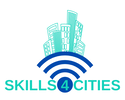
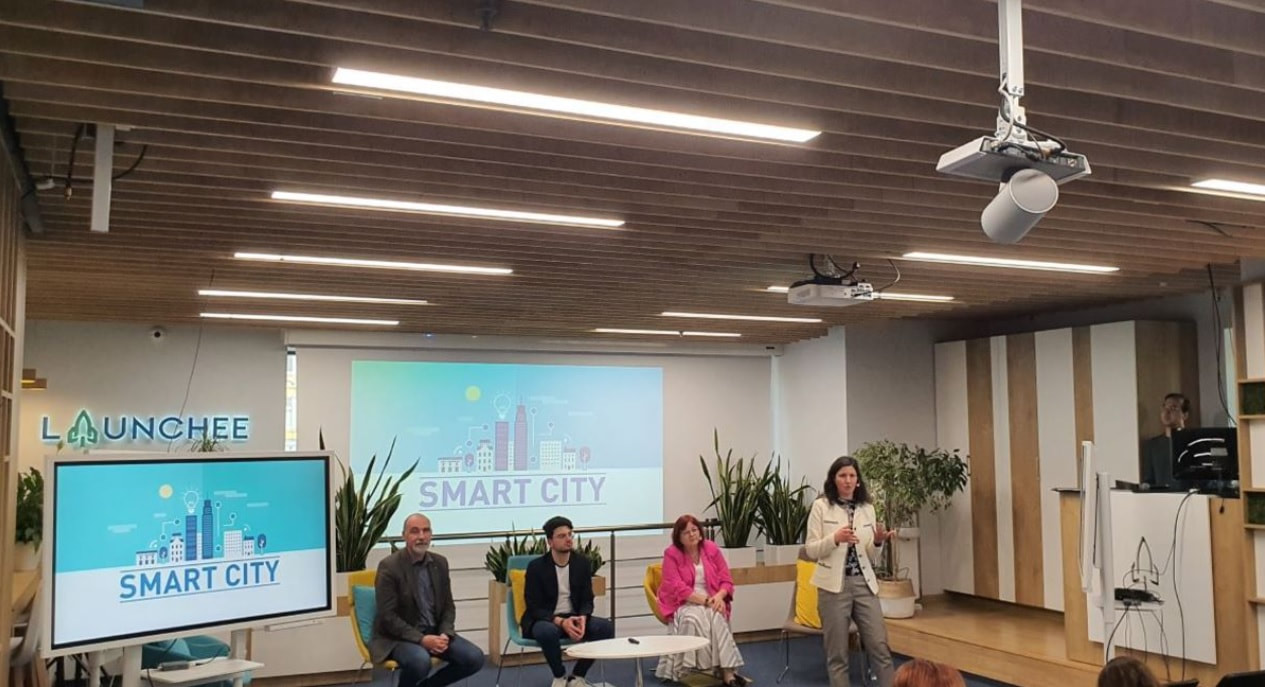
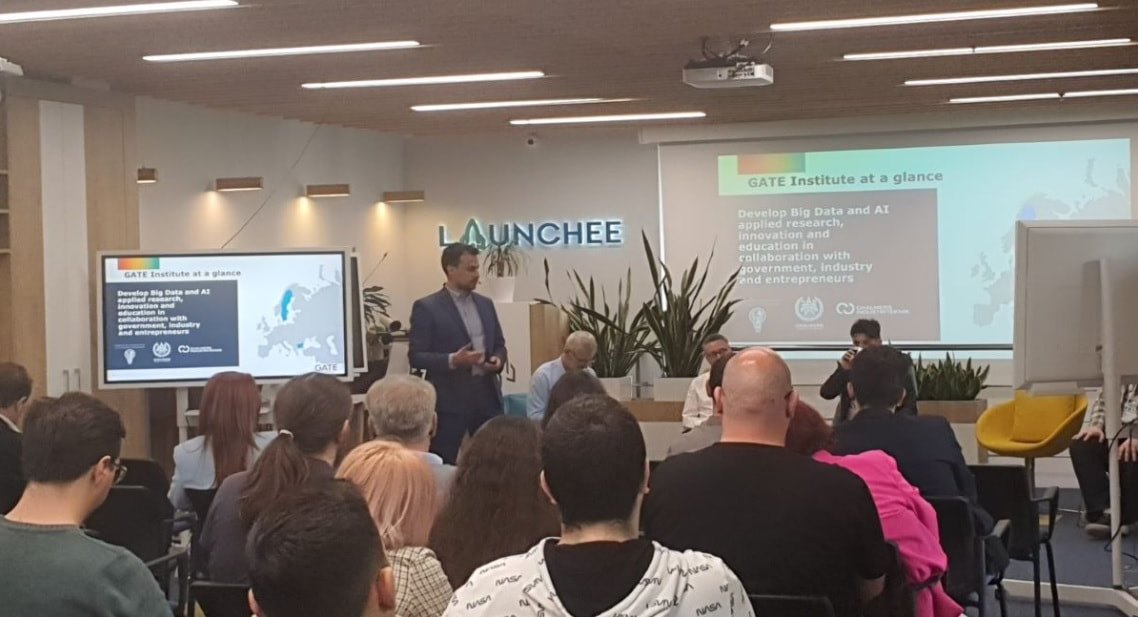
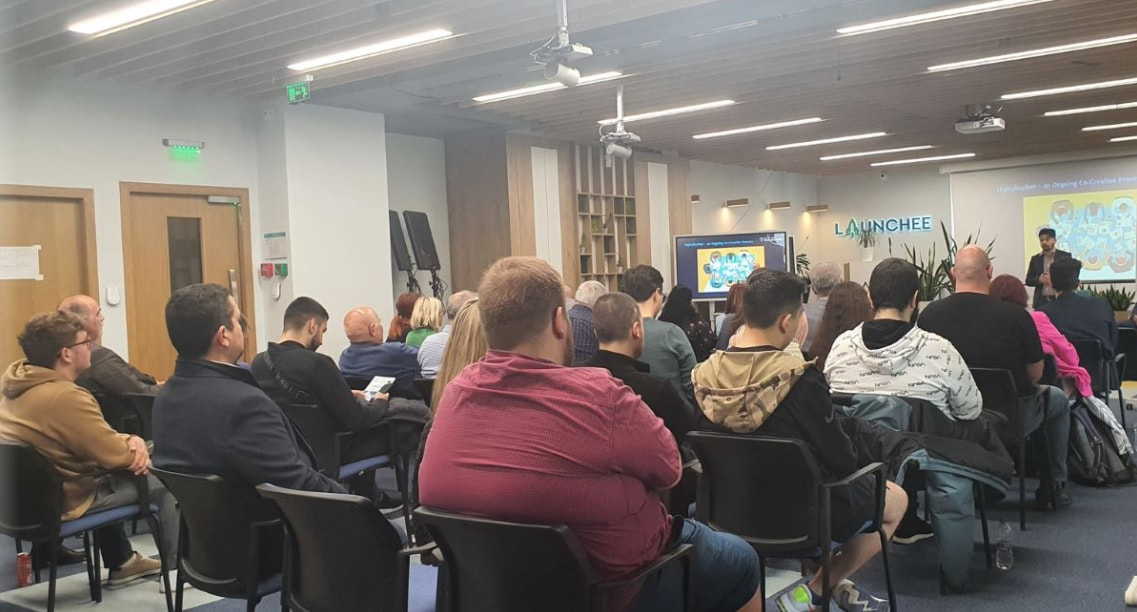
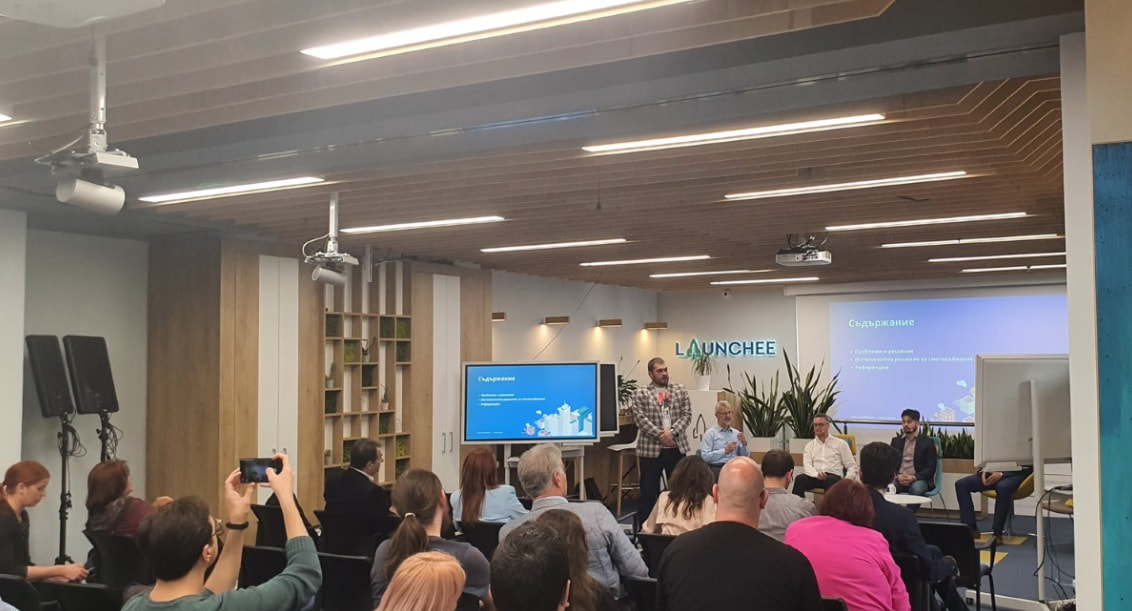




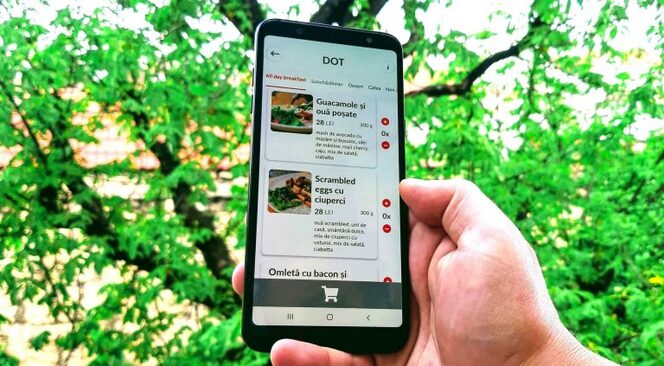
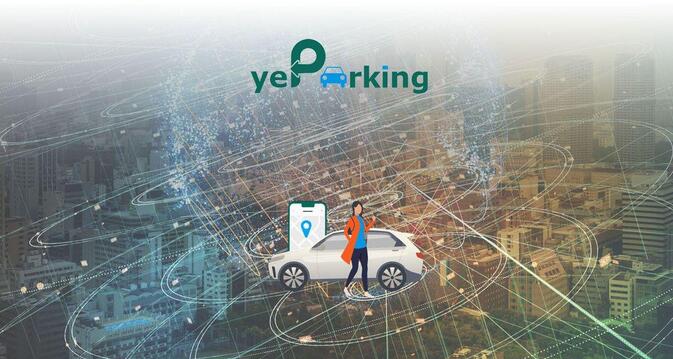
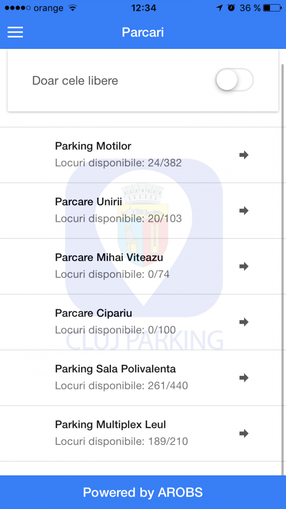
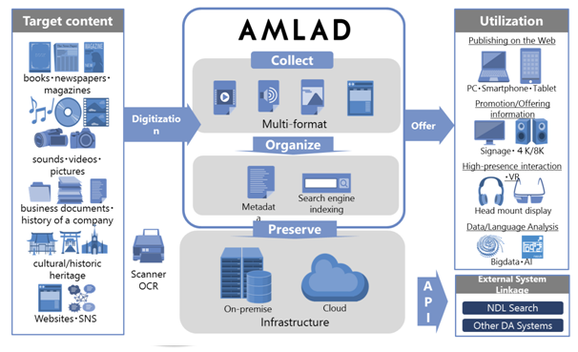



 RSS Feed
RSS Feed
